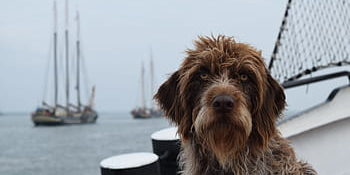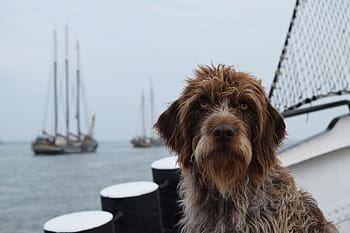
The Pudelpointer is large versatile gun dog with a distinct hunting instinct and lacks game or gun shyness. This dog originates genetically from two breeds and is a rough coated pointing dog that. The Poodle and the Pointer in Germany, was completely isolated from other pointing breeds. In it’s native country of Germany, it has always ranked high in performance tests and in the field. People enjoyed and valued this breed for its desire and drive.
Pudelpointers are gun dogs. This breed is calm, friendly, and a great family dog. They get along well with children and have a natural desire for affection.
The Pudelpointer History
Pudelpointers originated in Germany in 1881, created by crossing Poodles with Pointers. The idea behind the breed was to create a dog that combined the Poodle’s intelligence, love of water, retrieving instincts, easy train-ability, willingness to please, and protective coat with the Pointer’s endless desire to hunt, birdiness, pointing instincts, field nose and endurance.
Where did the Pudelpointer Come From?

The Pudelpointer is a rough-coated pointing dog from Germany. It originated from two breeds, the Poodle and the Pointer. A German breeder Baron von Zedlitz wanted to produce an ideal tracking, pointing and retrieving gun dog, suitable for work on both land water. The Baron started from seven specific Poodles and nearly 100 different pointers to develop the Pudelpointer. The English Pointer owned by Kaiser Frederick III named Tell and the Dam, and a Poodle named Molly, belonged to a famous author of hunting dogs, Hegewald. It took 30 years for Baron von Zedlitz to developed the perfect gundog.
Breeders created the breed with only 11 Poodles as opposed to well over 80 Pointers. Over time Breeders reintroduced the occasional pointer into the breed. After World Wars I and II, the breed became severely depleted and the reintroduction of the Pointer became important again to rebuild the breeding stock. In 1956, they began to import Pudelpointers to North America. Afterward the breed’s foundation was created, The Pudelpointer Club of North America in 1977 in Canada.
What Were They Bred For?
Pudelpointer is a breed of dog that originated in Germany. They are ideal for tracking, pointing, and retrieving game as well as they are suitable for work on both land and water. Pudelpointers love water. That’s what makes this a perfect gundog.
Are They a Pure Breed?
No
Pudelpointers at a Glance
[table “Pudelpointer” not found /]Pudelpointer Physical Traits
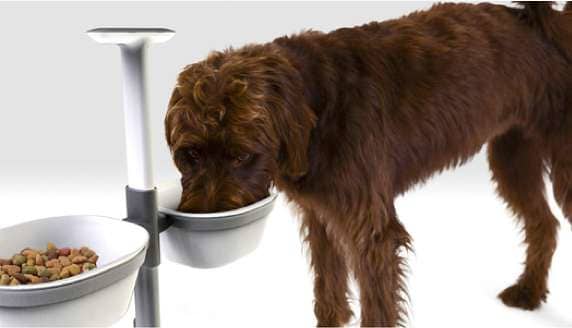
This dog is heavier with a coat that is not too long or rough. They are the color of dead leaves or black color protecting the whole body. The ideal coat is harsh, wiry, and dense. The dogs shed very little.
Breed Standard
Pudelpointer Size
- Male: 23–26 inches
- Female: 21–24 inches
Height measurements are always from the ground to the highest point of a dog’s shoulder blades. The highest point on a dogs shoulder-blades are known as the withers.
Weight
- Male: 50-65 pounds
- Female: 45-60 pounds
Grooming
Pudelpointer have a double coat. It’s coat is very rubust however. These coats can be kept in check by weekly brushing. During shedding season they need more brushing. Giving them the occassional bath will keep them clean.
Nails
Check their nails to make sure they are not split or cracked and trim as needed.
Ears:
Check their ears to make sure they are not full of debris or wax and clean as needed.
Do They Drool?
No
Best Climate for the Pudelpointer
The pudelpointer is a hunting dog, they can handle cold weather conditions.
Pudelpointer Temperament
Neither shy nor aggressive. Calm, self-controlled, even temperament with distinct hunting instinct, without game or gun shyness.
How Easy are They to Train?
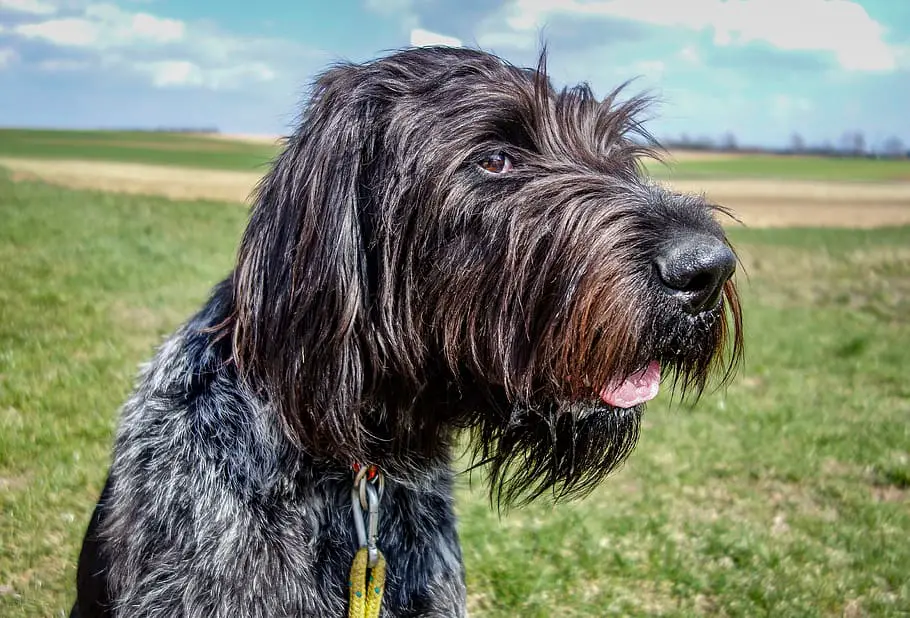
The combination of two hunting breads makes the Pudelpointer an intelligent dog and highly trainable. It has natural willingness to please. Training must be consistent with positive methods. It would be great if this breed starts socialization and training from it’s puppyhood. This dog is not deliberate or dominant.
Do They Tolerate Other Pets?
This breed has loving and gentle personalities towards to other dogs. They can also get along with others pets such as cat especially if they are raised together or introduced early.
Are They Good for Families?
This breed is friendly and curious, as well as being easy to train and eager to please. They get along well with children and have a natural desire for affection. They like being involved with their human family life. Pudelpointers can easily adjust to lifestyle changes and different living environments with their owners.
Do They Have a Strong Prey Drive?
Pudelpointers is a versatile hunting dog. This breed has the necessary capabilities that is suited for hunting. It is natural for them to chase and catch small prey.
Are They Social With Other People?
10
Is The Pudelpointer Good for New Owners?
Pudelpointers are not aggressive. They are also trainable and easy-going. They are friendly, any novice owners can handle them.
Health
Pudelpointer is a generally healthy breed but since this breed is a hunting dog—similar to the Norwegian Lundehund — they might experience field injuries or ear infections because of their work. their are some common health issues may occur like any other breed could have; hip dysplasia and bloat, simply due to the dogs size.
The Pudelpointer Lifespan
11 – 14 years
Health Issues
Pudelpointer may experience hip dysplasia (HD) and epilepsy during in their lives.
Exercise
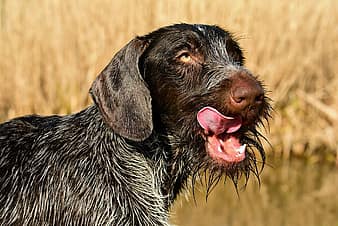
The Pudelpointer, as a hunting breed, needs regular exercise. Daily walk can satisfy them but it would be great if you can include play time in the backyard with preferably fenced as exercise. You can also give them an indoor activity as part of their exercise such as hide-and-seek, chasing a ball rolled along the floor, or learning new tricks. Certain outdoor activities like swimming, hiking, or retrieving balls or flying discs can provide a good outlet for expending energy. The Pudelpointer absolutely loves the water! Training for dog sports like agility, obedience, and rally can also be a great way to give your dog exercise.
Pudelpointer Rescues
No available information on rescue groups.
